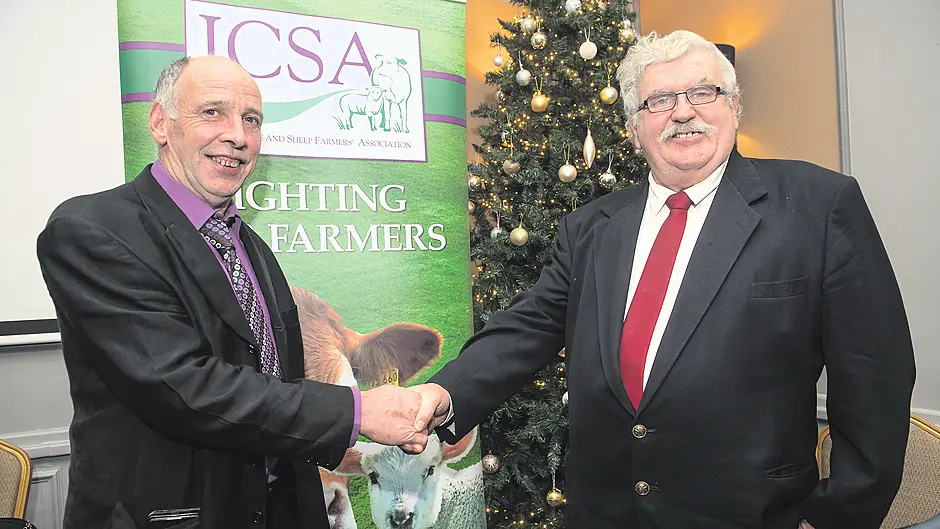Inchigeela farmer Dermot Kelleher has been returned to the helm of the ICSA, which has demanded financial aid to help with earlier calving and methane-reducing feed additivies
THE ICSA has requested a financial package of €1.750bn to assist farmers meet what is being demanded of them in the national climate action plan.
The organisation held its presidential election last week, and current chief, West Cork man Dermot Kelleher, tied with Westmeath opponent Sean McNamara.
Each candidate received 31 votes, and they decided on a power sharing agreement for the next two years.
Mr Kelleher will remain in situ as president for 2023 and Mr McNamara will take up the office of president for 2024.
The morning after the election they met Minister Charlie McConalogue to discuss the Food Vision Strategy and other issues.
Mr Kelleher said it was a positive meeting where they requested financial aid of €250m a year for the next seven years to meet their climate action requirements.
Policies that involve getting farmers to quit or to substantially undermine the productivity of their farms will simply result in a continuing exodus to more intensive dairy farming, he said, adding that it was about getting a balance between profit and sustainability. ‘ICSA is adamant that means a resilient beef finishing sector as well as keeping our less intensive suckler and sheep sectors intact to the greatest extent possible. For that reason, ICSA has proposed additional supports of €80m for store and beef producers, €60m for suckler producers and €50m for the sheep sector, along with €50m for red clover reseeding. In addition, money will be needed to offset methane reducing feed additives and overall, we see that costing €250m per annum for the next seven years,’ he said.
Mr Kelleher said that was the minimum package they want to see to support active farmers.
‘In practice it would include incentives for weighing on a regular basis; allocated to DNA tested animals only and a scheme to incentivise increased efficiency around suckler calving. A key point is that reducing calving interval and average first calving date must be realistic and based on marginal improvements across the board rather than any demand to calve at two years old.
‘It is not a saleable proposition to tell farmers that they must switch from three-year-old to two-year-old calving. However, if every farmer calved a month earlier on average and eliminated passenger cows there would be significant economic and climate gains,’ he said.
‘Ireland’s Climate Action Plan has budget of €125bn. We’re being told that agriculture is responsible for 30% of all emissions in the country, and we’re not even asking for 30% of the budget.’
Mr Kelleher said the Minister ‘didn’t say yes, or no’ to their proposals.
‘He seemed interested in our proposal – we’ve shown him a clear pathway. We made it clear that farmers can’t be expected to save the planet out of their own pocket.’
Acknowledging that he was leading the organisation at a challenging time, he said that members were getting annoyed with action after action being put on them, for no compensation.
‘The country’s suckler herd is not for sale,’ he stressed.









